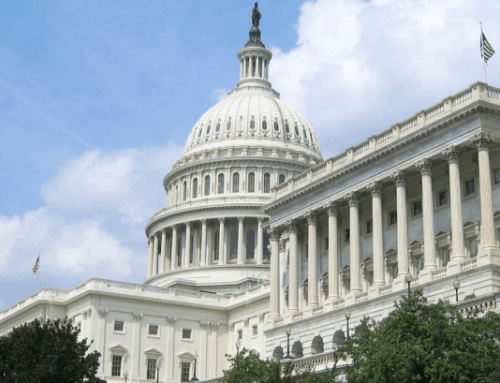Budget battles are never pretty, particularly when the White House is in the hands of one political party and Congress is in the hands of the other. Add in “defense hawks” and “fiscal hawks” wrestling over the self-imposed caps on defense and non-defense spending and you have the legislative equivalent of a steel cage match.
Under the 1974 Congressional Budget and Impoundment Act, the House and Senate Budget Committees create blueprints for federal spending for the coming fiscal year. Then they are supposed to hammer out an agreement that sets the top line discretionary spending level. It doesn’t have the force of law, but the budget resolution at least ensures that while there may be underlying differences on the amount of cash given to the various agencies in twelve spending bills, they all add up to the same number. (The budget resolution can also provide enforceable instructions – budget reconciliation – to other committees to find savings and revenue in their subject areas but that’s for another Wastebasket.)
In theory, the Fiscal Year (FY) 2016 budget resolution should be easy to write; the top line numbers for defense and non-defense discretionary spending are spelled out by the Budget Control Act that Congress and the President already enacted. But the demand for more Pentagon spending has led budgeteers into the dark fiscal art of putting spending off-budget to evade the caps. Enter OCO.
We have spilled a lot of ink writing about Overseas Contingency Operations (OCO) spending, frequently making the argument that OCO is little more than a slush fund, insulating the Pentagon from the effects of the budget caps set by the Budget Control Act (BCA). Our long held view is that much of the money in the OCO budget is actually for “base budget” functions and should be funded there – where it is subject to BCA caps. After all, no other federal department is offered the same opportunity to pay for major programs “off-budget.”
So at the beginning of the year, we were (ever so briefly) pleased to note that the FY16 OCO request for the Pentagon was $50.9 billion – a decrease of $13 billion from last year. The Pentagon’s budget was set to get a slight increase under the budget caps, but the President went further, providing $38 billion more in “base budget” funding than was legally allowed under the caps. And for fiscal conservatives everywhere, this was cause for major concern.
Now, enter the House Budget Committee. Not content with the President’s cap-busting, they came up with an overreach of their own: fund OCO – that off-budget account not subject to the caps – at $94 billion in FY16. That would be the most OCO spending since FY12, and more than half the amount the Pentagon received for OCO in FY08 ($186.7 billion) in the midst of “The Surge” when the U.S. was actively engaged in two shooting wars.
Next up, the Senate Budget Committee. The proposal by Senate Budget Committee Chairman Enzi funded OCO at the level requested by the President, $50.9 billion for the Pentagon (and $7 billion for the State Department). And while it hewed to the caps, it also left open the possibility to get more cash for the Pentagon (and non-defense agencies) if deficit-neutral legislation were to be enacted later for that purpose.
This gambit evidently wasn’t enough and lawmakers amended the proposal. The final bill that came out of Senate Budget Committee took a page from their partners across the Capitol and jacked up OCO to $94 billion.
This is a blatant effort by lawmakers to squirm out of the Budget Control Act caps. And the BCA, although much maligned, was agreed to by bipartisan majorities in the House and the Senate and signed into law by the President less than four years ago. This scheme is an insult to taxpayers who were promised $1.2 trillion in deficit reduction over ten years. No one – not even the Pentagon – pretends they need nearly $100 billion to prosecute war-fighting activities in FY16, this is just a gimmick that shirks lawmakers responsibility to come up with fiscally sound solutions. It’s not as if we’re in love with the BCA, but as we recently said in a letter from fiscal conservative groups aimed at keeping the House and Senate Budget Committees from doing exactly this, “Any effort to modify [the BCA] must be done in a way that keeps promises made to taxpayers.” It’s past time for policymakers to come up with fiscally responsible solutions instead of gimmicks and budgetary parlor tricks.










